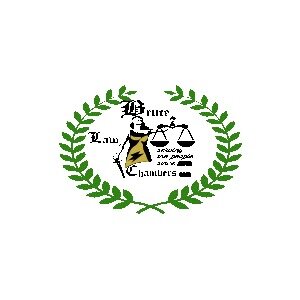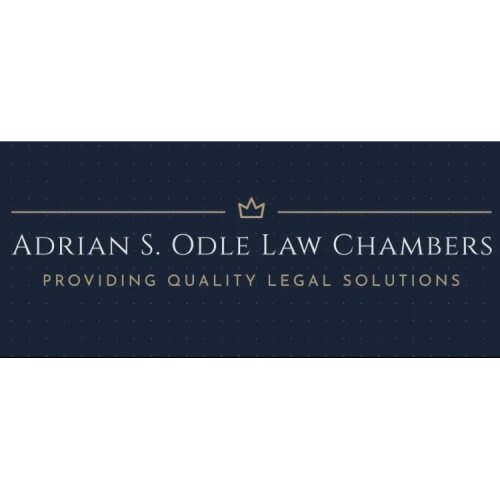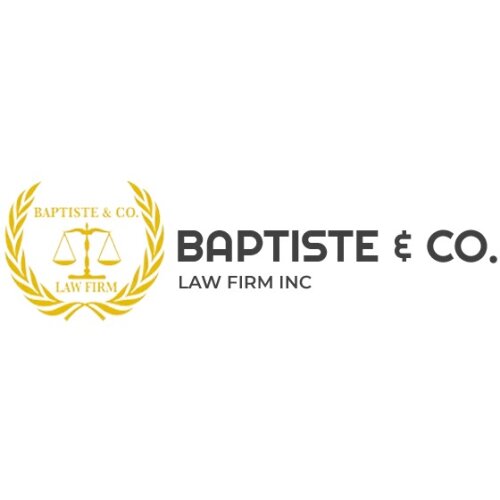Best Restructuring & Insolvency Lawyers in Saint Vincent and the Grenadines
Share your needs with us, get contacted by law firms.
Free. Takes 2 min.
Or refine your search by selecting a city:
List of the best lawyers in Saint Vincent and the Grenadines
About Restructuring & Insolvency Law in Saint Vincent and the Grenadines
Restructuring and insolvency law in Saint Vincent and the Grenadines focuses on addressing situations where individuals or businesses face financial distress and are unable to meet their financial obligations. The legal framework is designed to provide mechanisms for companies and individuals to either restructure debts and continue operations, or, if necessary, orderly wind up affairs and distribute assets among creditors. Because Saint Vincent and the Grenadines is a member of the Eastern Caribbean Supreme Court, insolvency proceedings are shaped by regional legislation and local statutes. These laws set out the processes for receiverships, liquidations, and bankruptcy, aiming to balance the interests of debtors and creditors while promoting economic stability.
Why You May Need a Lawyer
A lawyer with expertise in restructuring and insolvency can be critical in several scenarios. Some common situations where legal assistance may be necessary include:
- If you own a business that is struggling financially and need guidance on restructuring debts or negotiating with creditors.
- If you are facing creditor actions such as foreclosure, repossession, or winding-up petitions.
- If you are a creditor seeking to recover funds from an insolvent company or individual.
- If you require advice on directors' duties and personal liabilities during insolvency.
- If you need to navigate court procedures related to bankruptcy or liquidation.
In any of these cases, a legal professional can clarify your rights and obligations, help you assess your options, draft necessary documents, represent you in court, and guide you toward the best possible outcome.
Local Laws Overview
The legal framework for restructuring and insolvency in Saint Vincent and the Grenadines is primarily governed by the Bankruptcy and Insolvency Act, the Companies Act, and rules of the Eastern Caribbean Supreme Court. Key aspects include:
- Provisions for voluntary liquidation and court-ordered liquidation of companies.
- Rules concerning creditor arrangements and schemes for restructuring debt.
- The role of liquidators, receivers, and trustees and the process for their appointment.
- Duties and potential liabilities for directors during insolvency proceedings.
- Priority of claims and distribution of assets among secured and unsecured creditors.
- Opportunities for restructuring, such as negotiating payment plans with creditors and implementing schemes of arrangement.
Saint Vincent and the Grenadines also applies certain regional standards from the Eastern Caribbean, which can impact court procedures and professional appointments during insolvency.
Frequently Asked Questions
What is insolvency?
Insolvency occurs when an individual or business cannot meet its financial obligations as they become due. This can involve either cash flow insolvency (not having the means to pay bills on time) or balance sheet insolvency (when liabilities exceed assets).
What is the difference between restructuring and liquidation?
Restructuring refers to efforts to reorganize a debtor’s affairs in a way that allows continued operation, such as negotiating with creditors or rearranging company structure. Liquidation, on the other hand, means selling off assets to pay creditors and usually leads to the end of the business.
What happens during a company liquidation in Saint Vincent and the Grenadines?
During liquidation, a liquidator is appointed to gather and manage the company’s assets, pay off debts according to legal priorities, and distribute any remaining funds to shareholders. Once completed, the company is formally dissolved.
Can an individual file for bankruptcy in Saint Vincent and the Grenadines?
Yes, individuals may file for bankruptcy under the Bankruptcy and Insolvency Act. The process aims to provide relief from overwhelming debt while ensuring fair treatment of creditors.
Are directors personally liable for company debts during insolvency?
Directors are generally not personally liable for company debts unless they breach specific duties, such as trading while insolvent or acting fraudulently. Legal advice is essential to understand potential personal risks.
What is a scheme of arrangement?
A scheme of arrangement is a court-approved agreement between a company and its creditors to restructure debt or change terms, often as an alternative to liquidation.
How are creditors paid during insolvency?
Creditors are paid according to a statutory order of priority. Secured creditors typically have the first claim, followed by preferential creditors, unsecured creditors, and finally shareholders if any assets remain.
What role does the court play in insolvency proceedings?
The court oversees various aspects, including the approval of schemes of arrangement, appointment of liquidators, and hearing disputes between debtors and creditors.
Can I stop creditor actions once insolvency proceedings have started?
In many cases, the initiation of insolvency proceedings imposes a legal stay on creditor actions, giving time to assess the situation and develop a solution or plan under court supervision.
Do foreign insolvency judgments apply in Saint Vincent and the Grenadines?
Recognition of foreign insolvency judgments depends on local law and international agreements. It is important to seek legal advice if cross-border issues arise, as procedures may vary.
Additional Resources
Individuals and businesses seeking further information or assistance can consult the following resources:
- The Eastern Caribbean Supreme Court - for procedural guidance and forms relating to insolvency.
- The Financial Services Authority of Saint Vincent and the Grenadines - for information about corporate compliance and liquidation processes.
- Certified insolvency practitioners and accountants registered in Saint Vincent and the Grenadines.
- Local business associations - for support and referrals.
- Legal aid services - for individuals unable to afford private legal representation.
Next Steps
If you are facing financial difficulties or dealing with insolvency-related matters in Saint Vincent and the Grenadines, it is important to:
- Gather all relevant financial documents, including statements of assets, liabilities, and recent correspondence with creditors.
- Consult a lawyer who specializes in restructuring and insolvency to assess your situation and explain your options.
- Be proactive in seeking advice before matters escalate - early intervention often leads to better outcomes.
- Contact local regulatory bodies or support organizations if you need clarification or practical assistance.
Navigating restructuring and insolvency can be complex, but with qualified professional guidance, you can make informed decisions that protect your interests and help you move forward.
Lawzana helps you find the best lawyers and law firms in Saint Vincent and the Grenadines through a curated and pre-screened list of qualified legal professionals. Our platform offers rankings and detailed profiles of attorneys and law firms, allowing you to compare based on practice areas, including Restructuring & Insolvency, experience, and client feedback.
Each profile includes a description of the firm's areas of practice, client reviews, team members and partners, year of establishment, spoken languages, office locations, contact information, social media presence, and any published articles or resources. Most firms on our platform speak English and are experienced in both local and international legal matters.
Get a quote from top-rated law firms in Saint Vincent and the Grenadines — quickly, securely, and without unnecessary hassle.
Disclaimer:
The information provided on this page is for general informational purposes only and does not constitute legal advice. While we strive to ensure the accuracy and relevance of the content, legal information may change over time, and interpretations of the law can vary. You should always consult with a qualified legal professional for advice specific to your situation.
We disclaim all liability for actions taken or not taken based on the content of this page. If you believe any information is incorrect or outdated, please contact us, and we will review and update it where appropriate.
Browse restructuring & insolvency law firms by city in Saint Vincent and the Grenadines
Refine your search by selecting a city.











